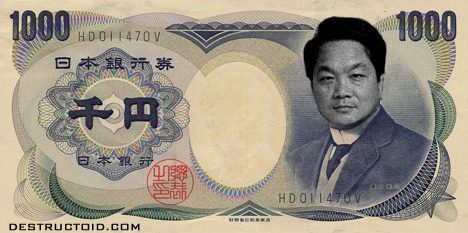When it comes to video games, every company has that one magical product that they rely on frequently to net profits. In the case of Microsoft, Xbox Live and their Live Arcade service are among the primary factors that enabled them to start profiting from the 360. In the case of Nintendo, the DS pulled them out of their slump after the near-disasterous tenure of the GameCube. Electronic Arts has their sports franchises to fall back on when all else fails. Activision has a plethora of popular licenses for them to exploit.
And then, we have Sony Computer Entertainment, market leader in the last two generations of the console wars (not counting handhelds). You’d think a company like Sony would only benefit from their numerous years of success and expertise. Learn what’s right and wrong. What’s hot and what’s not. Unfortunately, this doesn’t seem to be the case this time around. At least, that’s the impression one gets from the recent talks with developers.
However, it would seem that not all is lost. SCE always has been a persistent organization, as proven once again by their recent endeavours. It would also seem that luck is on their side. Sadly, this ray of hope for their PlayStation 3 presents itself in a most unexpected form. Allow me to direct your attention to this short excerpt from an article in the Financial Times:
The all-time weakness of the yen against the euro and pound could “save” the delicate economics of the PlayStation3 games console, and rescue Sony from an estimated four years of losses on its complex machine.
New calculations by UBS suggest that if the historic strengths of sterling and the euro against the yen continue into 2007, Sony will make only a tiny loss on each console when the PS3 is launched in Europe next March.
Recent reports by independent engineers who have stripped the PS3 to its component parts suggest that each unit is currently costing Sony a little over Y90,000 ($763). This in turn causes the company a loss of about Y30,000 every time a PS3 is sold in the US or Japan.
Hit the jump for more.
But based on analysts’ assumptions that the high-end PS3 will be sold at retail for about €590 ($757) in Europe and Britain, Sony will be losing less than Y3,000 per unit when the revenues from those markets are translated back into yen.
Fumio Osanai, a UBS analyst, said that Sony would be looking extremely carefully at yen weakness over the next 12 months, because “under current forex market conditions the European games market could save the PS3 from heavy early losses”.
The article goes on to remind us that Britain and continental Europe are an important market for the PS3, as they contributed to more than 35% of PS2 sales. It then goes on to quote an analyst’s calculation on the amount of revenue generated by PS3 game sales.
By one analyst’s calculation, which assumes that Sony makes about $10 in revenues on each game whether produced by itself or a third party, 30 games must be sold per PS3 console – compared with eight for the PlayStation2 – to make up for the losses which Sony will incur over the next few years before the hardware itself achieves break-even.
Now, I dislike analysts as much as the next guy, but doesn’t this sound familiar? It should, to all those of you who have read the recent interviews with Namco Bandai. Call me a Sony hater, or a fanboy or whatever you want, but I think it’s a terribly sorry state of affairs if a mega-corporation like SCE needs an unpredictable shift in currency rates to pull them out of their slump.




Published: Dec 1, 2006 03:05 am